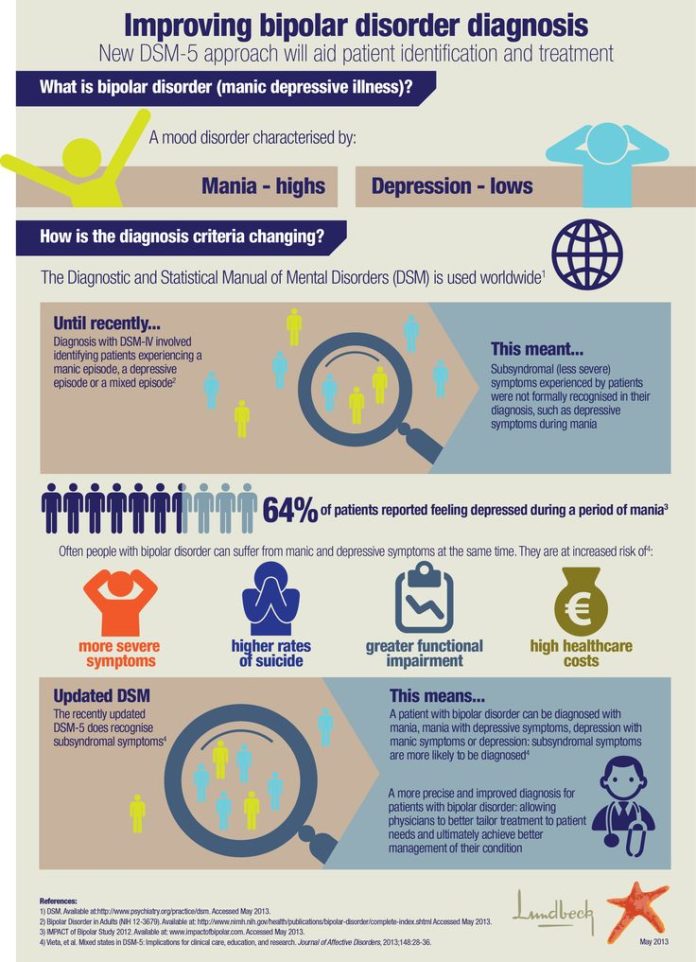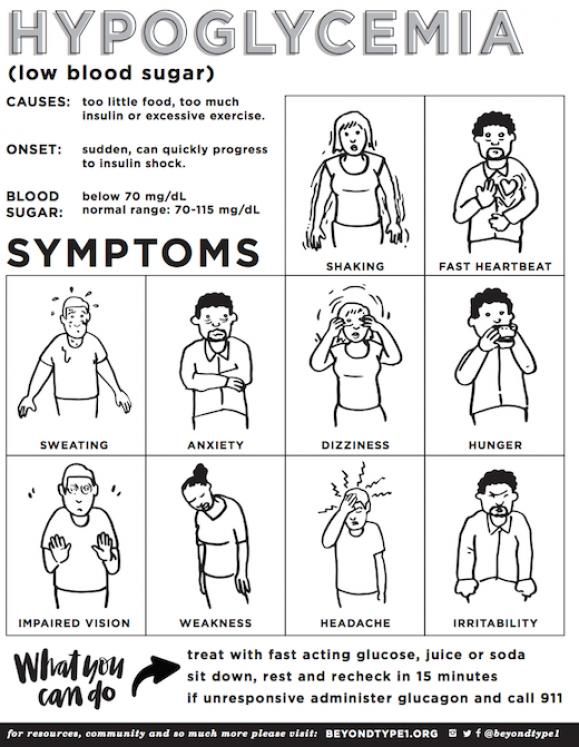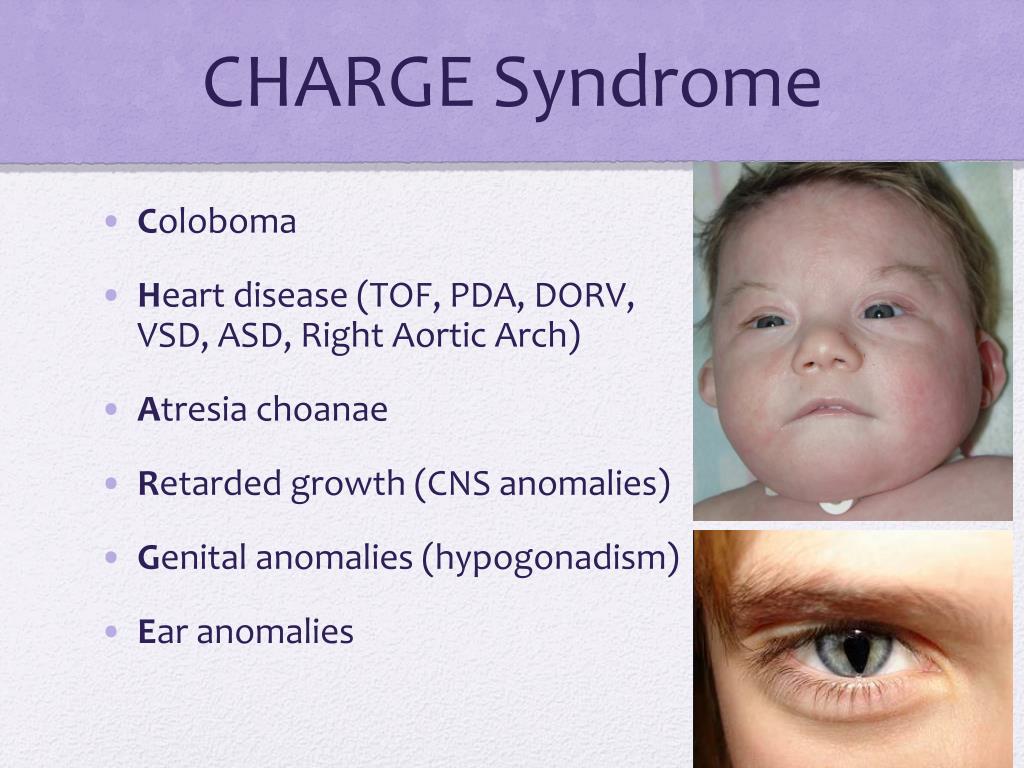Wellbutrin coming off
Symptoms of Stopping Wellbutrin (Bupropion)
What Is Wellbutrin (Bupropion)?
Wellbutrin, also known by its generic name bupropion, is a medication prescribed to people for depression as well as depression linked to bipolar disorder. Bupropion can also be used to help patients quit smoking and alleviate the depressive effects of seasonal affective disorder (SAD).
Like many types of medications, bupropion has the potential to produce common side effects. These include:
- Agitation
- Dry mouth
- Insomnia
- Headache
- Nausea or vomiting
- Constipation
- Tremor
Tell your doctor if these side effects persist or get worse or if you begin to show signs of more serious side effects, which can include serious mood swings and seizures in some people. If you experience a seizure while taking bupropion, stop taking the medication immediately and seek medical attention right away.
Wellbutrin Withdrawal and Detox
If you are thinking about discontinuing your Wellbutrin treatment, talk to your doctor about gradually tapering off your dose over time. Bupropion should never be stopped cold turkey unless your doctor instructs you to do so. Gradually taking less and less Wellbutrin gives the body time to respond to smaller amounts of the medication. Tapering over a longer period of time will also reduce the potential for serious withdrawal symptoms. Lowering your bupropion dose should be done only under your doctor’s supervision.
Side Effects of Stopping Wellbutrin Cold Turkey
The main side effect of stopping bupropion cold turkey is withdrawal symptoms. When you take a drug like bupropion on a regular basis, your brain and body become used to the drug and rely on its presence to function normally. As such, if you suddenly quit, your body may struggle to adjust to the drug no longer being present in the system. Withdrawal symptoms can start within a few days of quitting bupropion. However, Wellbutrin withdrawal is comparatively rare for people who stop taking the drug, as the drug is not strongly linked to withdrawal symptoms.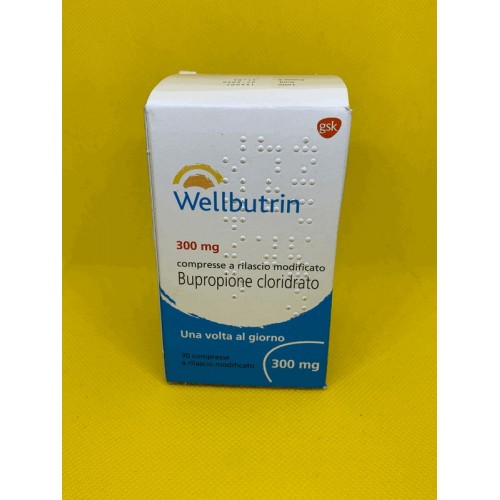
How To Wean Off Wellbutrin Safely
The best way to safely wean off Wellbutrin is to talk to your doctor before stopping the drug. Depending on the Wellbutrin dosage you take, you may or may not need to taper the drug, or slowly reducing your dose over time before stopping it. The drug’s package labeling states that higher doses of the drug, such as 300 mg or higher, should be tapered before stopping the drug. In these cases, the drug’s dose should be lowered to 150 mg daily for two weeks before the drug is stopped. Lower doses of the drug may not need to be tapered.
What Are Common Wellbutrin Withdrawal Symptoms?
Wellbutrin withdrawal symptoms include:
- Irritability
- Anxiety
- Trouble sleeping
- Headache
- Aches and pains
Wellbutrin Withdrawal Timeline and Symptom Durations
The amount of time one experiences Wellbutrin withdrawal symptoms may vary from person to person. Many people do not experience withdrawal symptoms at all when stopping bupropion, as the drug is not strongly linked to withdrawal.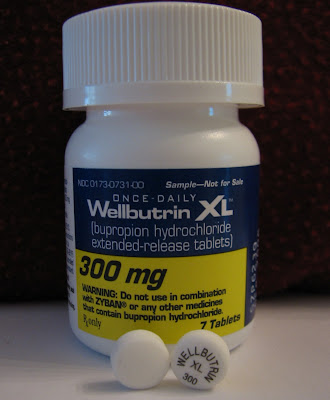 As a result, there is little information about how long it takes Wellbutrin withdrawal to resolve in those who do experience withdrawal symptoms. In some cases, the person in withdrawal is started back on bupropion and is then gently weaned off the drug over time to avoid withdrawal symptoms.
As a result, there is little information about how long it takes Wellbutrin withdrawal to resolve in those who do experience withdrawal symptoms. In some cases, the person in withdrawal is started back on bupropion and is then gently weaned off the drug over time to avoid withdrawal symptoms.
Managing Withdrawal Symptoms of Wellbutrin
Although Wellbutrin withdrawal symptoms are not life-threatening, they can still be unpleasant. If you are having difficulty managing Wellbutrin withdrawal symptoms, you should talk to your doctor. They may be able to recommend treatments to ease your Wellbutrin withdrawal symptoms, such as an analgesic for aches and pains.
Wellbutrin Medications and Detox
Be sure to keep a list of your medications, as well as nonprescription drugs and herbal products, so you can talk to your doctor about how Wellbutrin may interact with them. Taking bupropion with other medications may increase your risk of certain side effects.
Some medications that may interact with Wellbutrin include commonly abused medications and substances like:
- Alprazolam (Xanax)
- Buprenorphine, the active ingredient in Suboxone
- Butalbital, the main ingredient in Fioricet
- Chlordiazepoxide (Librium)
- Clonazepam (Klonopin)
- Cocaine
- Codeine
- Dexmethylphenidate (Focalin)
- Diazepam (Valium)
- Diphenhydramine (Benadryl)
- Fentanyl
- Heroin
- Hydromorphone (Dilaudid)
- Lisdexamfetamine (Vyvanse)
- Lorazepam (Ativan)
- Methamphetamine
- Morphine
- Nicotine
- Oxycodone (OxyContin)
- Zaleplon (Sonata)
- Zolpidem (Ambien)
Bupropion also has the potential to interfere with some medical or laboratory tests and cause false results, including urine screening for amphetamines. Be sure to let all your doctors and any appropriate laboratory personnel know that you are taking Wellbutrin.
Be sure to let all your doctors and any appropriate laboratory personnel know that you are taking Wellbutrin.
How To Choose a Wellbutrin Center
Although experts think Wellbutrin addiction is rare, quitting the drug can be problematic if you experience withdrawal symptoms when you try to stop. This is especially true if you have underlying mental health disorders for which you take Wellbutrin or if you combine the drug with other substances. If you struggle with Wellbutrin, with or without other substances, your doctor may recommend a professional detox center to help. At The Recovery Village, we customize your recovery plan from detox to wean you off Wellbutrin to rehab options to help keep you off the drug. Don’t wait: contact us today to see how we can help.
By – Abby Doty
Abby Doty graduated from Hamline University in 2021 with a Bachelor's in English and Psychology. She has written and edited creative and literary work as well as academic pieces focused primarily on psychology and mental health.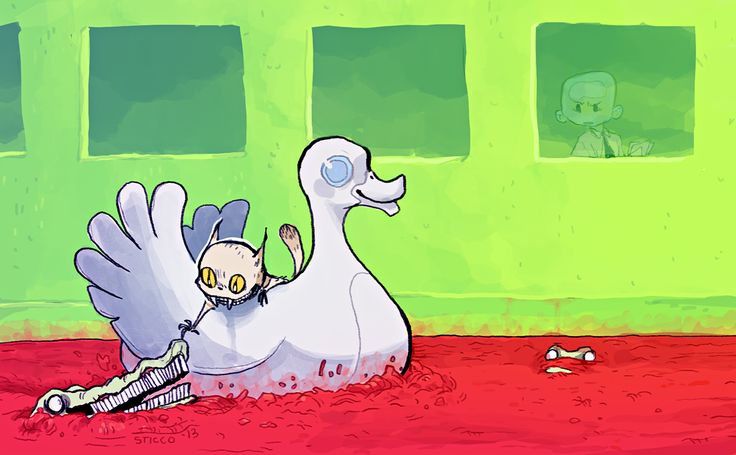 Read more
Read more
By – Dr. Jessica Pyhtila, PharmD
Dr. Jessica Pyhtila is a Clinical Pharmacy Specialist based in Baltimore, Maryland with practice sites in inpatient palliative care and outpatient primary care at the Department of Veteran Affairs. Read more
Read Previous
Wellbutrin Addiction Treatment & Rehab
Read Next
Drugs.com. “
Medical Disclaimer
The Recovery Village aims to improve the quality of life for people struggling with substance use or mental health disorder with fact-based content about the nature of behavioral health conditions, treatment options and their related outcomes. We publish material that is researched, cited, edited and reviewed by licensed medical professionals. The information we provide is not intended to be a substitute for professional medical advice, diagnosis or treatment. It should not be used in place of the advice of your physician or other qualified healthcare providers.
Reach out now
We can help answer your questions and talk through any concerns.
Call Us:
(352) 771-2700
Request a Call:
Wellbutrin Withdrawal: Symptoms and Coping
Wellbutrin is the brand name of the medication bupropion.
Wellbutrin and bupropion are considered to be the same medication.
Wellbutrin can be incredibly helpful for people living with depression as well as some other conditions, such as seasonal affective disorder (SAD).
Still, it doesn’t work for everyone or may cause side effects that someone would rather not live with.
Going off of Wellbutrin may be the right solution in some instances but it may lead to Wellbutrin withdrawal symptoms.
Though typically mild, it’s best to know what may happen so you can work with your healthcare provider to create a plan to cope with these symptoms if they do occur.
In this article, I’ll discuss Wellbutrin, antidepressant discontinuation syndrome, potential symptoms, and helpful ways to cope with Wellbutrin withdrawal.
What Is Wellbutrin?
Wellbutrin (Bupropion) is a frequently prescribed antidepressant medication.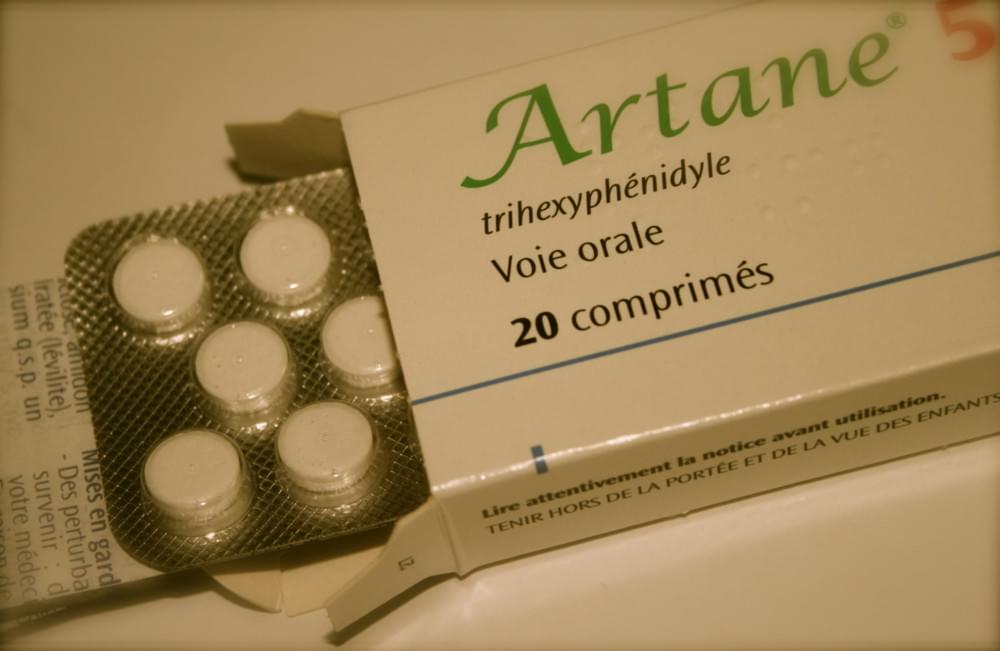
It is in the class of medications known as norepinephrine-dopamine reuptake inhibitors (NDRIs).
These medications adjust the balance of brain chemicals that may be causing depressive symptoms.
Wellbutrin is a popular antidepressant because it usually has fewer side effects and is less likely to cause weight gain, decreased sexual functioning, and fatigue when compared to other antidepressants.
Feeling Down?
Take our free assessment and learn about your options.
Get Started
Wellbutrin uses
Wellbutrin is primarily prescribed for treating major depressive disorder (MDD) and seasonal affective disorder.
It can also be prescribed to help with quitting smoking. In this instance, treatment typically lasts for up to 12 weeks. Wellbutrin works for about 20% of those who try it for smoking cessation.
For some patients, Wellbutrin may be used for:
- Attention Deficit Disorder/Attention Deficit Hyperactivity Disorder
- Weight loss
- Bipolar disorder
How Wellbutrin works
Wellbutrin works by helping the brain use the neurotransmitters norepinephrine and dopamine.
Low levels of these neurotransmitters are associated with symptoms of depression.
Over the course of a few weeks or months, Wellbutrin can help alleviate those symptoms.
Wellbutrin comes in two forms:
- Wellbutrin SR: This sustained-release version has to be taken more frequently, usually twice a day
- Wellbutrin XL: This extended-release version can be taken once a day because it stays in the body longer.
Antidepressant Discontinuation Syndrome
Antidepressants are commonly prescribed medications.
It is common for people who take them to eventually change medications or stop using antidepressants altogether.
In either case, this can lead to withdrawal symptoms that are called “antidepressant discontinuation syndrome”.
A healthcare provider should be contacted before stopping Bupropion (Wellbutrin) to create a plan to safely wean off of the medication
People who use antidepressants for a long time are at greater risk of antidepressant discontinuation syndrome.
Symptoms typically last for 1-2 weeks and are generally mild.
Symptoms of Wellbutrin Withdrawal
Wellbutrin appears to cause less severe withdrawal symptoms than other types of antidepressants.
Common signs and symptoms of withdrawal include:
- Headache
- Anxiety
- Muscle pain
- Irritability
- Difficulty sleeping
- Nicotine cravings (in people who use it to aid in smoking cessation)
Tips for Coping With Wellbutrin Withdrawal
Follow any instructions from your healthcare provider regarding slowly decreasing the medication dose.
If bothersome or severe withdrawal symptoms develop, your healthcare provider should be notified.
Also consider the items below to help support yourself through the process of stopping Wellbutrin.
Try psychotherapy
Mood changes like irritability and anxiety can make you feel less in control.
Talking to a counselor or therapist may help to provide some routine and support during the transition, and may help you feel more in control of your feelings and mood.
If you plan to use psychotherapy to support your medication transition, plan to start your sessions before or as close to discontinuation as possible.
Closely follow the taper dosage
When you stop taking Wellbutrin, your healthcare provider may provide “taper” instructions.
This means the dose of the medication will gradually decrease until the medication has been stopped.
Careful dosing is very important during this time.
Follow your provider’s instructions and contact them if you have any questions.
Keep in communication with your healthcare provider
Your plan to work your way off of Wellbutrin may need to be adjusted if you experience withdrawal symptoms.
Stay in touch with your healthcare provider and let them know if you start feeling worse, experience unexpected symptoms, or have other concerns.
Eat right and exercise
Focusing on your overall health can provide a helpful routine while you transition off of Wellbutrin.
Plus, eating well-balanced meals and getting regular physical activity are also great ways to promote a good mood.
Additional wellness ideas include staying hydrated, getting enough sleep, and managing stress in proactive ways.
Feeling Down?
Take our free assessment and learn about your options.
Get Started
When to See a Doctor
See your healthcare provider if you want to talk about changing antidepressant medications, reducing your dosage, or if you have concerns about your tapering or withdrawal process of Wellbutrin.
While Wellbutrin is not commonly known to lead to withdrawal symptoms, serious side effects and symptoms can occur.
Because of this potential risk, it is important to follow your provider’s instructions for stopping Wellbutrin.
If you experience suicidal thoughts or other thoughts that concern you while going off of Wellbutrin, immediately go for medical care at the nearest healthcare facility.
You can also contact the National Suicide Prevention Lifeline at 988.
If you feel you or a loved one is in danger, call 911 for immediate assistance.
How K Health Can Help
Think you might need a prescription for Wellbutrin (bupropion)?
K Health has clinicians standing by 24/7 to evaluate your symptoms and determine if Wellbutrin is right for you.
Get started with our free assessment, which will tell you in minutes if treatment could be a good fit. If yes, we’ll connect you right to a clinician who can prescribe medication and have it shipped right to your door.
Frequently Asked Questions
How long does Wellbutrin withdrawal last?
Depending on your initial dosage and how you taper, it may take a few weeks to fully stop taking Wellbutrin.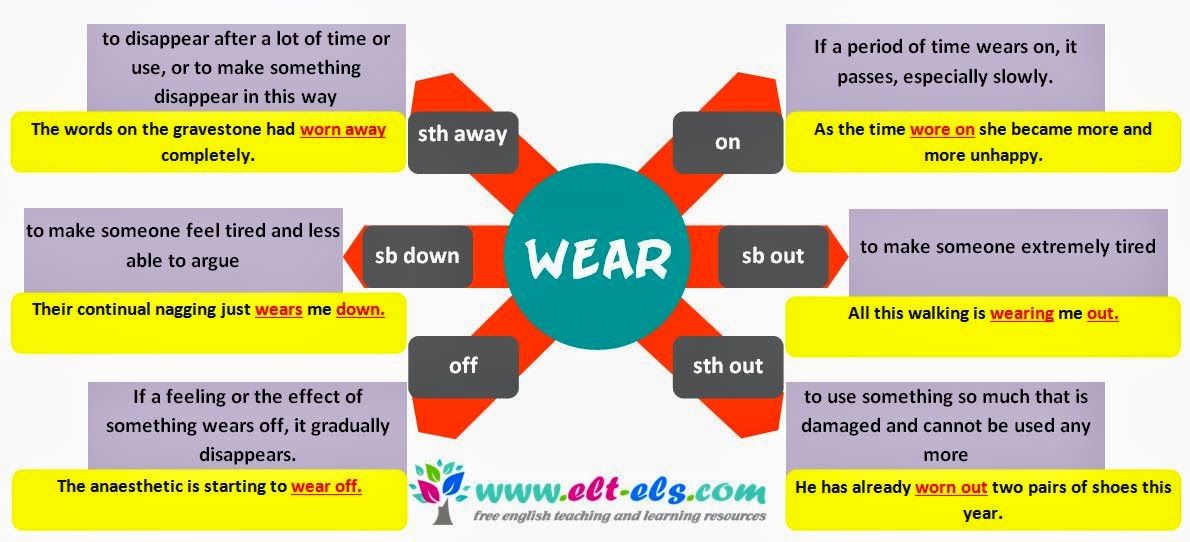 If you experience withdrawal feelings that are more severe or do not seem to be improving, speak with your healthcare provider.
If you experience withdrawal feelings that are more severe or do not seem to be improving, speak with your healthcare provider.
What happens when you stop taking Wellbutrin?
You should not stop taking any antidepressant suddenly. Most need to be tapered to decrease the risk of serious side effects. As you taper off of Wellbutrin, you may feel agitation or irritation. These symptoms should slowly subside as the medication works its way out of your system.
Can I take Wellbutrin every other day to wean off?
Talk to your healthcare provider about a personalized plan to help you wean off of Wellbutrin.
What are the long-term effects of taking Wellbutrin?
Wellbutrin is relatively well tolerated on a long-term basis and most side effects improve with time. There is always an increased risk of seizures while taking Wellbutrin. Be sure your healthcare provider is aware of any history of seizure activity.
There is always an increased risk of seizures while taking Wellbutrin. Be sure your healthcare provider is aware of any history of seizure activity.
K Health articles are all written and reviewed by MDs, PhDs, NPs, or PharmDs and are for informational purposes only. This information does not constitute and should not be relied on for professional medical advice. Always talk to your doctor about the risks and benefits of any treatment.
K Health has strict sourcing guidelines and relies on peer-reviewed studies, academic research institutions, and medical associations. We avoid using tertiary references.
-
15 Years of Clinical Experience With Bupropion HCl: From Bupropion to Bupropion SR to Bupropion XL. (2005).
https://www.ncbi. nlm.nih.gov/pmc/articles/PMC1163271/
nlm.nih.gov/pmc/articles/PMC1163271/ -
Antidepressant Discontinuation Syndrome. (2017).
https://www.ncbi.nlm.nih.gov/pmc/articles/PMC5449237/ -
Bupropion.
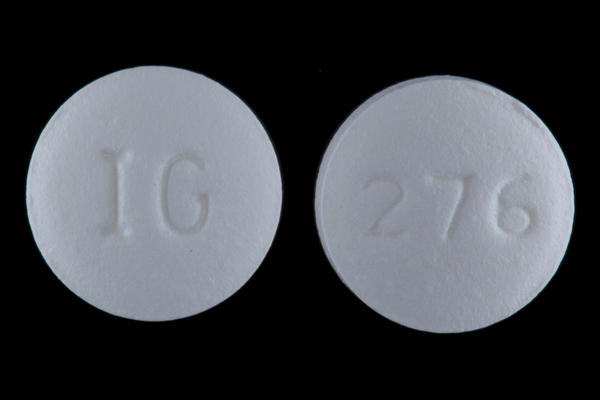 (2021).
(2021).
https://medlineplus.gov/druginfo/meds/a695033.html -
Bupropion-Associated Withdrawal Symptoms: A Case Report. (1999).
https://www.ncbi.nlm.nih.gov/pmc/articles/PMC181057/ -
The Efficacy and Tolerability of Bupropion in the Treatment of Major Depressive Disorder.
 (2011).
(2011).
https://pubmed.ncbi.nlm.nih.gov/22015858/ -
Norepinephrine-Dopamine Reuptake Inhibitors. (n.d.).
https://www.sciencedirect.com/topics/neuroscience/norepinephrine-dopamine-reuptake-inhibitors -
The Use of Buproprion SR in Cigarette Smoking Cessation.
 (2008).
(2008).
https://www.ncbi.nlm.nih.gov/pmc/articles/PMC2528204/
Bupropion gave criminal complications - Gazeta Kommersant No. 29 (6750) dated February 18, 2020 psychiatrists consider it a legal antidepressant. Astrakhan customs opened a large-scale drug smuggling case against Olga Kalinovskaya, suffering from a psychiatric illness, who received pills in the mail. The woman claims that she did not even order the medicine - the package was allegedly a New Year's gift from a friend who advised her on treatment. Experts point out that bupropion is not banned in Russia, but this does not interfere with judging for its purchase.
Photo: Sergey Mikheev, Kommersant / buy photo
Photo: Sergey Mikheev, Kommersant / buy photo
Olga Kalinovskaya lived in Ukraine since 2008, where she was diagnosed with a depressive personality disorder. In 2012, an acquaintance of hers, a teacher who works with special children, suggested that the woman might also have attention deficit hyperactivity disorder (ADHD). She advised me to contact a friend from Norway who lives with ADHD himself and consults other patients remotely. He confirmed the diagnosis of Olga Kalinovskaya and recommended bupropion for treatment; she several times ordered the drug to Ukraine from an Indian pharmaceutical company without any problems.
In 2012, an acquaintance of hers, a teacher who works with special children, suggested that the woman might also have attention deficit hyperactivity disorder (ADHD). She advised me to contact a friend from Norway who lives with ADHD himself and consults other patients remotely. He confirmed the diagnosis of Olga Kalinovskaya and recommended bupropion for treatment; she several times ordered the drug to Ukraine from an Indian pharmaceutical company without any problems.
Abroad Bupropion is completely legal and prescribed by doctors as an antidepressant or to help quit smoking. Foreign pharmaceutical companies produce bupropion tablets under different names: Zyban, Elontril, Wellbutrin. Until 2016, it was also sold in Russia, and the Ministry of Health even included it in the standards for the provision of medical care. But then the manufacturer left the Russian market and withdrew the license from the State Register of Medicines. By law, such drugs without a license can be bought and sold as dietary supplements.
In 2017, Olga Kalinovskaya returned to Volgograd with her husband and child to take care of her elderly mother. The woman passed a psychiatric commission, but Russian doctors did not confirm ADHD. She was given a different diagnosis (she asked not to disclose it to the media) and prescribed treatment. Ivan Martynikhin, a member of the executive committee of the Russian Society of Psychiatrists, told Kommersant that ADHD is poorly diagnosed in Russia: “Doctors do not know that it persists in adults. I see patients who come in with a depressive disorder, and ADHD is at the root."
At the same time, the psychiatrist emphasized that one should not engage in self-examination: “Only in half of the patients who came to see me and complained of ADHD, the syndrome was actually confirmed.”
At the end of December 2019, Kalinovskaya received a notification about the delivery of an unknown package from India. She was detained at the post office - it turned out that the package contained 300 bupropion tablets.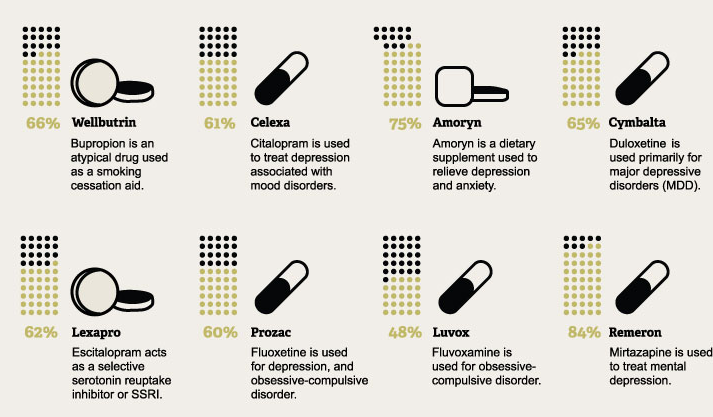 According to Mrs. Kalinovskaya, this was a complete surprise for her. Later, the woman found out that the same patient-consultant from Norway had sent the drug. “He didn’t warn me, he sent me pills for his money. He explained that he knew about my problem and just wanted to help,” said Olga Kalinovskaya. As a result, the Astrakhan customs opened a criminal case against Ms. Kalinovskaya under Part 3 of Art. 229.1 of the Criminal Code of the Russian Federation (drug smuggling on an especially large scale, the maximum penalty is up to 20 years in prison). Customs experts considered that the tablets contained "derivatives" of the illegal drug ephedron.
According to Mrs. Kalinovskaya, this was a complete surprise for her. Later, the woman found out that the same patient-consultant from Norway had sent the drug. “He didn’t warn me, he sent me pills for his money. He explained that he knew about my problem and just wanted to help,” said Olga Kalinovskaya. As a result, the Astrakhan customs opened a criminal case against Ms. Kalinovskaya under Part 3 of Art. 229.1 of the Criminal Code of the Russian Federation (drug smuggling on an especially large scale, the maximum penalty is up to 20 years in prison). Customs experts considered that the tablets contained "derivatives" of the illegal drug ephedron.
As Kommersant already told, in early 2019, Russian law enforcement agencies began to arrest citizens ordering drugs with bupropion in foreign online stores. The fact is that in Russian legislation since 2012 there is the concept of “derivatives of narcotic drugs” - this is the name of substances created by slightly changing the chemical formula of the drug. "Derivatives" are not listed as banned substances, but are still considered drugs. This wording appeared as part of the fight against new types of drugs, primarily "spice" - manufacturers quickly changed parts of the formula, which made it possible for some time to sell the drug without the threat of punishment. However, lawyers and narcologists already then criticized the idea of “derivatives” for legal uncertainty: they warned that sooner or later legal pharmaceuticals would fall under the ban.
"Derivatives" are not listed as banned substances, but are still considered drugs. This wording appeared as part of the fight against new types of drugs, primarily "spice" - manufacturers quickly changed parts of the formula, which made it possible for some time to sell the drug without the threat of punishment. However, lawyers and narcologists already then criticized the idea of “derivatives” for legal uncertainty: they warned that sooner or later legal pharmaceuticals would fall under the ban.
There are already about ten criminal cases of bupropion smuggling, at least two people are in jail.
At the same time, the Russian Society of Psychiatrists (ROP) published an official conclusion in August 2019 that bupropion is not a drug and does not lead to dependence. Ivan Martynikhin, a member of the executive committee of the ROP, said that patients applied to the society with a request to include bupropion in clinical recommendations. The psychiatrist told Kommersant that the drug has practically no analogues and "kills two birds with one stone: bupropion is good in the treatment of depression and affects the cause - attention deficit hyperactivity disorder. " Ivan Martynikhin noted that bupropion does not have severe side effects, which is important for patients with bipolar depression. Moreover, the drug can be prescribed in addition to the main drugs to correct side effects.
" Ivan Martynikhin noted that bupropion does not have severe side effects, which is important for patients with bipolar depression. Moreover, the drug can be prescribed in addition to the main drugs to correct side effects.
Legal consultant on drug-related cases, expert of the Institute of Human Rights Arseniy Levinson draws attention to the fact that no Russian legal act prohibits bupropion for circulation in the Russian Federation, nowhere is it officially indicated that it is considered a drug. “If a person does not read the news, then there is no way for him to know that bupropion is recognized by the police as a derivative of ephedron,” says Mr. Levinson. “Obviously, such a person cannot commit smuggling, a crime involving direct intent. In other words, the person must know that he is committing a crime and desire it. How could Olga Kalinovskaya know that the medicine she freely bought in Ukraine suddenly turned out to be a drug in Russia?” According to him, "the authorities stubbornly ignore" the problem of criminal liability for "derivatives". Mr. Levinson participates in the work of the Duma working group on improving anti-drug legislation; summer 2019years he spoke there about the situation with bupropion. “The representative of the Ministry of Internal Affairs said that they are aware of the problem, that the police are humanely sorry for those who are persecuted for purchasing medicine for medical reasons, but nothing needs to be changed,” said Arseniy Levinson.
Mr. Levinson participates in the work of the Duma working group on improving anti-drug legislation; summer 2019years he spoke there about the situation with bupropion. “The representative of the Ministry of Internal Affairs said that they are aware of the problem, that the police are humanely sorry for those who are persecuted for purchasing medicine for medical reasons, but nothing needs to be changed,” said Arseniy Levinson.
“As a result, I face 20 years in prison for inaccuracies in the legislation,” says Olga Kalinovskaya.
Recall that the first criminal case on the smuggling of bupropion was initiated in April 2019 by the Ural customs against Daria Belyaeva, who ordered an antidepressant from Poland. As Irina Ruchko, the girl's lawyer, told Kommersant, in January 2020 the case was returned for additional investigation for the third time - with the wording that the investigation "did not specify the circumstances of socially dangerous acts." According to her, now the investigator intends to send several requests: “At least, to the medical institution where Daria was treated - to find out what drugs she was prescribed in connection with the disease. And to the Ministry of Health - to find out the attitude of the department towards bupropion.
And to the Ministry of Health - to find out the attitude of the department towards bupropion.
The lawyer said that the investigator himself became the object of a departmental check: “Initially, the defense was acquainted with the decision on the appointment of an examination on bupropion, where the expert was asked five questions. And then the same decision appeared in the case file, only with three questions. In simple terms, this means that the investigator replaced one decision with another.” The lawyer sent a petition, after which the Investigative Committee checked the actions of the investigator. “The results are not yet known to me, but I very much doubt that a criminal case will be initiated,” she said.
During the investigation, Darya Belyaeva was assigned an additional psychiatric examination - the girl was declared insane. “If the court concludes that she is guilty, then she will be sent to compulsory outpatient treatment,” the lawyer explained. “That is, in any case, she is not threatened with a colony now. But this situation puts pressure on her - after all, she already had a serious illness. Of course, it is not easy for her to bear it. “Let's hope that the case will be dismissed without trial on rehabilitative grounds,” says Arseniy Levinson. “It is absolutely obvious that there is no public danger in the actions of a patient who acquires a medicine legal all over the world for medical use.”
But this situation puts pressure on her - after all, she already had a serious illness. Of course, it is not easy for her to bear it. “Let's hope that the case will be dismissed without trial on rehabilitative grounds,” says Arseniy Levinson. “It is absolutely obvious that there is no public danger in the actions of a patient who acquires a medicine legal all over the world for medical use.”
Elizaveta Lamova, Alexander Chernykh
Help to quit smoking for cancer prevention
Quitting smoking is one of the easiest ways to prevent cancer.
- If you don't smoke, never start.
- If you smoke, stop smoking.
However, in practice this is very difficult for many people to do. Cigarettes contain nicotine, a highly addictive substance, and smoking can become a daily habit that is difficult to break. Many resort to it as a way to overcome stress or improve mood. Others believe that smoking helps them communicate (so-called "social" smoking). Some fear that quitting smoking will lead to weight gain.
Some fear that quitting smoking will lead to weight gain.
The good news is that there are many ways to help you quit smoking.
Percentage of childhood cancer survivors who smoke
Although these rates are declining, a significant proportion of childhood cancer survivors smoke. In a study conducted among childhood cancer survivors, approximately 19% admitted to smoking. In subsequent surveys, this figure dropped to 14%. Assuming that 14% of the current number of all childhood cancer survivors are smokers (about 419000 people), this will be more than 58,000 people.
Childhood cancer survivors are at increased risk of a wide range of long-term health problems. With age, these risks increase even more. By the age of 50, more than half of childhood cancer survivors are seriously ill. This includes new cancers as well as heart, lung, liver, kidney or hormonal problems.
Smoking is an additional health risk factor. According to the Centers for Disease Control, smoking is the easiest cause of various diseases to eliminate. Smoking causes cancer, cardiovascular disease, stroke, lung disease, and chronic obstructive pulmonary disease (COPD).
Smoking causes cancer, cardiovascular disease, stroke, lung disease, and chronic obstructive pulmonary disease (COPD).
If you have already started smoking, you can stop. It might not be easy. You will probably quit smoking several times before you quit the habit for good. But you can do it.
Make a plan
Quitting smoking starts with a plan. It will allow you to focus on your goal and stay motivated. The National Cancer Institute's website smokefree.gov provides free, verified information and professional advice designed specifically for those trying to quit smoking.
Experts recommend making a plan with the following 7 steps:
- Set a date for quitting smoking. Add it to your calendar. Give yourself time to prepare.
- Find reasons to quit smoking.
- Think of situations in which you usually reach for a cigarette.
- Get ready to fight the temptation to smoke.
- Get rid of everything that reminds you of smoking.

- Call for help. (You'd be surprised at the amount of resources available to help quit smoking!)
- Tell your family and friends about your plans. Enlist their support.
Support Tools
In addition to the smokefree.gov website, many organizations offer free resources to support smokers trying to quit.
The Centers for Disease Control's Tips From Former Smokers® campaign encourages ex-smokers to share their stories and make videos. Videos are created for specific social groups, including adults with disabilities, LGBT people, the military, people with mental disorders and pregnant women.
The American Lung Association launched the Freedom From Smoking® program. Program members can create their own personal plan, prepare strategies, share experiences, get interactive support, and learn about medications that can help.
The American Society of Clinical Oncology offers a free online brochure called Stopping Tobacco Use after a Cancer Diagnosis.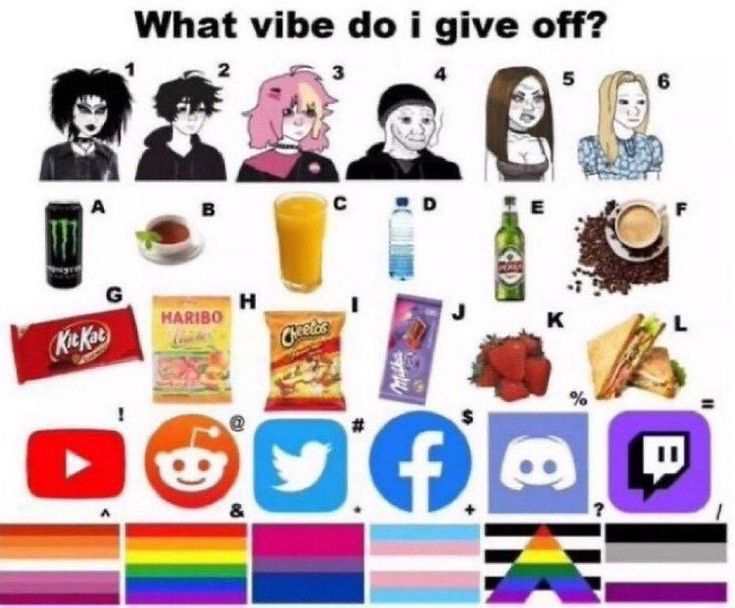
Drugs
The US Food and Drug Administration has approved 7 drugs to combat nicotine addiction. People with childhood cancer should consult their healthcare provider before using any of these remedies.
Recommended drugs include five forms of nicotine replacement therapy (NRT):
- patch
- Chewing gum
- Inhaler
- Nasal spray
- Lozenges
The remaining two drugs are not NRT:
- Bupropion SR (trade name Zyban® when used as part of a tobacco cessation and Wellbutrin® when used as an antidepressant)
- Varenicline (trade name Chantix®)
Nicotine patch, chewing gum and lozenges available without a prescription. The inhaler, nasal spray, patch, and non-NRT drugs are available by prescription.
Support for family and friends
Finally, tell your family and friends about your plans to quit smoking. Tell them how they can help you. Family and friends can support you on this difficult journey.
